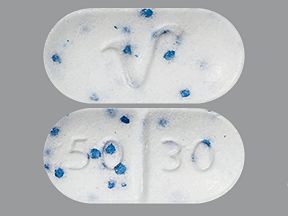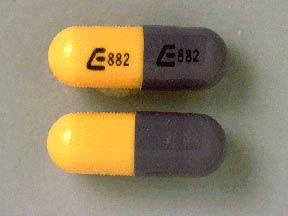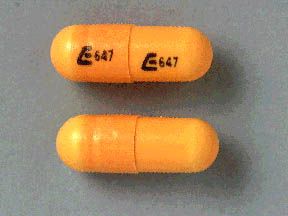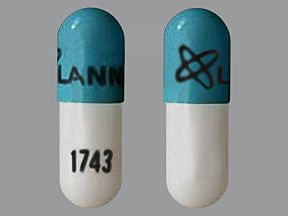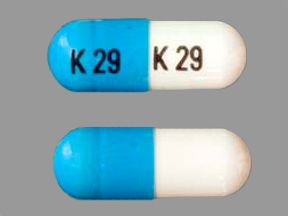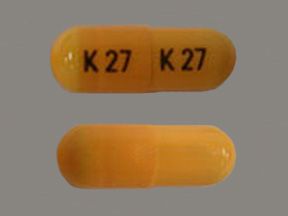Phentermine is a generic prescription medication. It’s prescribed to help with weight loss in certain adults who have overweight or obesity.
Specifically, it’s approved by the Food and Drug Administration (FDA) for adults with:
- a body mass index (BMI)* of 30 or more
- a BMI of 27 or more and other factors that raise the risk of health problems, such as high blood pressure, high cholesterol, or diabetes
Phentermine is approved for short-term use (a few weeks) alongside diet and exercise adjustments.
* BMI is a measurement used by doctors to help determine whether your weight is healthy for you. It’s based on your weight and height. You can calculate your BMI here.
Drug details
Phentermine belongs to a class of drugs called anorectics. It’s a stimulant medication that reduces your appetite.
Phentermine is available in the following forms and strengths:
- oral tablet that you swallow: 8 milligrams (mg), 37.5 mg
- oral capsule that you swallow: 15 mg, 30 mg, 37.5 mg
- oral disintegrating tablet: 15 mg, 30 mg, 37.5 mg
Controlled substance
Phentermine is a schedule IV (four) controlled substance. This means it has an accepted medical use, but also has a risk of misuse and dependence.
With misuse, a drug is taken in a way or for a use that’s not prescribed. Dependence can be physical or psychological. With physical dependence, your body relies on a drug to function as it typically does. With psychological dependence, it is hard to stop taking a drug. Drugs that can cause psychological dependence are also described as being addictive.
To minimize the risks of misuse and dependence, there are special rules for how controlled substances such as phentermine can be prescribed and dispensed. Your doctor or pharmacist can explain more about this.
Taking phentermine is banned in competitive sports.
Brand-name versions
Phentermine is also available as the brand-name medications Adipex-P and Lomaira.
Phentermine is a generic drug. A generic drug is an exact copy of the active drug in a brand-name medication. Adipex-P and Lomaira are the brand-name medications that different strengths of phentermine are based on. A generic is considered to be as safe and effective as the original drug. Generics tend to cost less than brand-name drugs.
If you’re interested in taking Adipex-P or Lomaira instead of phentermine, talk with your doctor. They can tell you if Adipex-P or Lomaira come in forms and strengths that can be used for your condition. If you have insurance, you’ll also need to check whether your plan will cover Adipex-P or Lomaira.
To learn more about how generics compare with brand-name drugs, see this article.
Phentermine can cause mild or serious side effects. The following lists contain some of the key side effects that may occur while taking phentermine. These lists do not include all possible side effects.
For more information about the possible side effects of phentermine, talk with your doctor or pharmacist. They can give you tips on how to manage any side effects that may be concerning or bothersome.
Note: The Food and Drug Administration (FDA) tracks side effects of drugs it has approved. If you would like to notify the FDA about a side effect you’ve had with phentermine, you can do so through MedWatch.
Mild side effects
Below is a partial list of mild side effects of phentermine. To learn about other mild side effects, talk with your doctor or pharmacist, or view phentermine’s prescribing information.
Mild side effects of phentermine can include:
- diarrhea
- constipation
- headache
- dry mouth
- unpleasant taste in your mouth
- restlessness
- tremors
- insomnia
- feelings of unease
- feelings of excitement or intense happiness
- dizziness
- erectile dysfunction
- mild allergic reaction*
Most of these side effects may go away within a few days to a couple of weeks. However, if they become more severe or don’t go away, talk with your doctor or pharmacist.
* For more information about allergic reaction and phentermine, see “Allergic reaction” below.
Serious side effects
Serious side effects from phentermine aren’t common. However, they can occur. Call your doctor right away if you have serious side effects. Call 911 or your local emergency number if your symptoms feel life threatening or if you think you’re having a medical emergency.
Serious side effects can include:
- increased blood pressure
- heart-related side effects, such as fast heart rate, palpitations, and heart valve disease
- primary pulmonary hypertension (high blood pressure in the arteries supplying the lungs)
- psychosis (loss of touch with reality)
- severe allergic reaction*
* For details about allergic reaction and phentermine, see “Allergic reaction” below.
ALLERGIC REACTIONAs with most drugs, some people can have an allergic reaction after taking phentermine. This side effect wasn’t reported in clinical trials of this drug. However, it can still occur.
Symptoms of a mild allergic reaction can include:
A more severe allergic reaction is rare. However, it is possible. Symptoms of a severe allergic reaction can include:
- swelling under your skin, typically in your eyelids, lips, hands, or feet
- swelling of your tongue, mouth, or throat
- trouble breathing
Call your doctor right away if you have an allergic reaction to phentermine, as the reaction could become severe. Call 911 or your local emergency number if your symptoms feel life threatening or if you think you’re having a medical emergency.
The Food and Drug Administration (FDA) approves prescription drugs such as phentermine to treat certain conditions.
Phentermine is FDA-approved to help with weight loss in certain adults who have overweight or obesity.
Specifically, it’s FDA-approved for adults with:
- a body mass index (BMI)* of 30 or more
- a BMI of 27 or more and other factors that raise the risk of health problems, such as high blood pressure, high cholesterol, or diabetes
Phentermine is approved for short-term use (a few weeks) alongside diet and exercise adjustments.
* BMI is a measurement used by doctors to help determine whether your weight is healthy for you. It’s based on your weight and height. You can calculate your BMI here.
Weight loss management explained
Carrying excess weight can raise your risk of developing several health conditions. These include type 2 diabetes, heart disease, high blood pressure, and cancer, among others. If you receive a diagnosis of overweight or obesity, your doctor will likely recommend losing weight to help lower your risk of health complications.
Weight loss typically happens when you consume fewer calories than you burn. This means weight loss tends to result from a combination of following a lower calorie, balanced diet and exercising more. Long lasting weight management tends to come from long-term changes to your lifestyle.
However, some people may have trouble losing weight, despite making changes to their diet and activity levels. In this case, your doctor may recommend taking a weight loss medication to boost the effect of your lifestyle changes.
Phentermine reduces your appetite and can help with weight loss management. However, it can be taken for only a few weeks.
To learn more about weight management, exercise, and fitness, visit our hub for exercise and fitness.
Phentermine and children
Phentermine is not FDA-approved for use in children under age 16 years. It’s not known if it’s safe or effective in this age group.
Here are answers to some frequently asked questions about phentermine.
Does phentermine cause different side effects in females and males?
Not typically. Phentermine’s side effects don’t typically differ between females and males.*
However, phentermine can sometimes cause sexual side effects that could differ between males and females. For example, in males, phentermine can sometimes cause erectile dysfunction.
Sexual side effects typically go away after you stop taking the medication. If you’re concerned about sexual side effects with phentermine, talk with your doctor.
* Sex and gender exist on spectrums. Use of the terms “male” and “female” in this article refers to sex assigned at birth.
Can phentermine, including the 30 mg strength, cause long-term side effects?
It’s not likely. You’ll typically take phentermine for only a few weeks. If you have side effects with the dosage you take, these typically get better soon after you stop taking the medication.
However, on rare occasions, phentermine can cause heart valve damage. This could lead to long-term heart problems.
Long-term treatment with phentermine is not recommended. Your doctor will typically prescribe phentermine for only a few weeks to minimize the risk of serious side effects. These include heart valve problems, as well as certain other side effects.
For example, long-term treatment could raise your risk of mental health concerns such as psychosis (losing touch with reality). It could also lead to dependence on the medication. With dependence, you rely on the medication to function as it typically does, either physically or mentally.
If you’re concerned about your risk of side effects with the dosage of phentermine you’re prescribed, or the length of time your doctor prescribes it for, talk with your doctor.
How does phentermine work?
It’s not fully understood how phentermine works to help you lose weight. The drug affects various chemical messengers in your brain. One of its effects is to reduce your appetite, so you feel less hungry. This can make it easier to consume fewer calories, which can lead to weight loss. However, the drug may also have other effects on your metabolism that help lead to weight loss.
Phentermine’s effects in your body last for about 20 hours after you stop taking it. This is the drug’s half-life. A drug’s half-life describes how long it takes for your body to expel half a dose of the medication.
To maintain weight loss, it’s important to continue to follow your diet and exercise plan after stopping phentermine.
Is phentermine similar to Adderall? Can phentermine be used for ADHD?
Adderall is a stimulant medication that contains the active drugs amphetamine and dextroamphetamine. It’s used to treat attention deficit hyperactivity disorder (ADHD).
Phentermine is related to Adderall. However, it’s not used to treat ADHD. It’s not approved by the Food and Drug Administration (FDA) for this use, and doctors don’t typically prescribe it off-label for this use. It hasn’t been studied for ADHD and it’s not known if it’s effective for this use.
To find out about treatment options for ADHD, talk with your doctor.
How does phentermine compare with other similar drugs, such as Contrave or Qsymia?
Other medications are available to help weight loss. Some of these have been approved by the FDA, while others may be prescribed off-label. (With off-label use, a drug is prescribed for a use other than that approved by the FDA.)
Along with phentermine, other drugs that are FDA-approved to help with weight loss in certain adults who have overweight or obesity include:
- naltrexone/bupropion (Contrave)
- phentermine, topiramate (Qsymia)
- semaglutide (Wegovy)
- liraglutide (Saxenda)
All these medications reduce your appetite and help you consume fewer calories. Contrave can also help manage feelings of pleasure you get when eating. This can help you manage food cravings. Unlike phentermine, these drugs are all approved for long-term use.
Phentermine, Contrave, and Qysmia are all oral treatments. Wegovy and Saxenda are subcutaneous injections.
Other drugs that doctors sometimes prescribe off-label to help with weight loss include topiramate (Topamax) and bupropion (Wellbutrin). Topiramate is also prescribed off-label for binge eating disorder.
To learn more about how phentermine compares with other weight loss medications, talk with your doctor. They can help you determine the treatment option that’s right for you.
The phentermine dosage your doctor prescribes will depend on several factors. These include:
- the type and severity of the condition you’re taking phentermine to treat
- your age
- the form of phentermine you take
- other medical conditions you may have
Typically, your doctor will start by prescribing a low dosage. Then they’ll adjust it over time to reach the amount that’s right for you. Your doctor will ultimately prescribe the smallest dosage that provides the desired effect.
The following information describes dosages that are commonly prescribed or recommended. However, be sure to take the dosage your doctor prescribes for you. Your doctor will determine the best dosage to fit your needs.
Dosage for weight loss management
Here’s phentermine dosage information for weight loss management.
| Phentermine for weight loss management | |
| Forms | • oral tablet • oral capsule • orally disintegrating tablet |
| Strengths | • 8 milligrams (mg) • 15 mg • 30 mg • 37.5 mg |
| Dosages | • 15 mg to 37.5 mg once per day in the morning OR • 18.75 mg twice per day OR • 4 mg to 8 mg three times per day |
| Maximum dose | 37.5 mg per day |
| Administered by | self |
What if I miss a dose?
If you miss a dose, take it as soon as you remember, unless it’s nearly time for your next dose. In this case, skip the missed dose and just take your next scheduled dose as you typically would. However, avoid taking a dose in the evening, as this could cause trouble sleeping. Never take a double dose or extra doses to make up for missed doses.
To help make sure that you don’t miss a dose, try using a medication reminder. This can include setting an alarm or using a timer. You could also download a reminder app on your phone.
Will I need to take this drug long term?
No, phentermine is meant to be a short-term treatment. You should not take it for longer than a few weeks.
Phentermine can interact with several other medications. It can also interact with certain supplements as well as certain foods.
Different interactions can cause different effects. For instance, some interactions can interfere with how well a drug works. Other interactions can increase side effects or make them more severe. Drug-condition interactions can also cause certain effects. For information about these interactions, see the “Phentermine precautions” section below.
Phentermine and other medications
Before taking phentermine, talk with your doctor and pharmacist. Tell them about all prescription, over-the-counter, and other drugs you take. Also tell them about any vitamins, herbs, and supplements you take. Sharing this information can help you avoid potential interactions.
Below is a table of medications that can interact with phentermine. This table does not contain all drugs that may interact with phentermine.
| Medication type or medication name | Medication examples |
| monoamine oxidase inhibitors (MAOIs) | • phenelzine (Nardil) • selegiline (Emsam) • isocarboxazid (Marplan) |
| selective serotonin reuptake inhibitors (SSRIs) | • fluoxetine (Prozac) • paroxetine (Paxil) • sertraline (Zoloft) |
| other weight loss drugs | • naltrexone/bupropion (Contrave) • phentermine/topiramate (Qsymia) • semaglutide (Wegovy) • liraglutide (Saxenda) |
| diabetes medications | • insulin (Lantus, Humalog, Levemir, others) • empagliflozin (Jardiance) • metformin (Glumetza, Fortamet, others) • glipizide (Glucotrol) |
| beta-blockers | • atenolol (Tenormin) • bisoprolol • propranolol (Inderal LA, Innopran XL, others) |
| alpha-blockers | • prazosin (Minipress) • doxazosin (Cardura) |
Your doctor or pharmacist can provide you with more information about the interactions between these medications and phentermine. If you have questions about any drug interactions that may affect you, your doctor or pharmacist can address those as well.
As with all medications, the cost of phentermine can vary. The actual price you’ll pay depends on your insurance plan, your location, and the pharmacy you use.
Before approving coverage for phentermine, your insurance company may require you to get prior authorization. This means that your doctor and insurance company will need to communicate about your prescription before the insurance company will cover the drug. The insurance company will review the prior authorization request and decide whether the drug will be covered.
If you’re not sure whether you’ll need to get prior authorization for phentermine, contact your insurance company.
Financial and insurance assistance
Financial assistance to help you pay for phentermine may be available.
Medicine Assistance Tool and NeedyMeds are two websites offering resources that may help decrease the price you pay for phentermine. They also offer tools to help you find low cost healthcare, as well as educational resources. To learn more, visit their sites.
Mail-order pharmacies
Phentermine may be available through a mail-order pharmacy. Using this service may help lower the drug’s cost and allow you to get your medication without leaving home.
Some Medicare plans may help cover the cost of mail-order medications. If you don’t have insurance, you can ask your doctor or pharmacist about online pharmacy options.
There haven’t been studies on whether phentermine can cause drug dependence. However, phentermine is a stimulant medication that’s related to amphetamine drugs. Similar to amphetamines, phentermine has a risk of misuse and dependence.
With misuse, a drug is taken in a way or for a use that’s not prescribed. Misuse can lead to dependence on the drug. Dependence can be physical or psychological.
With physical dependence, your body relies on a drug to function as it typically does. As a result, you may have withdrawal symptoms. (With withdrawal symptoms, you experience side effects that can occur when you stop taking a drug that your body has become dependent on.) With psychological dependence, you feel unable to stop taking a drug. Drugs that can cause psychological dependence are also described as being addictive.
You should take phentermine only as prescribed by your doctor. Due to the risk of dependence, you should not take it for longer than a few weeks.
Here’s some information about the safety of taking phentermine during pregnancy or while breastfeeding.
Phentermine and pregnancy
If you’re pregnant, you should not take phentermine. Phentermine is a weight loss drug. Losing weight during pregnancy can be harmful to the developing fetus.
If you’re pregnant or planning to become pregnant, talk with your doctor about the best way to maintain a healthy weight for you during your pregnancy.
If you become pregnant while taking phentermine, talk with your doctor right away.
Phentermine and breastfeeding
If you’re breastfeeding, you should not take phentermine. It’s not known if phentermine can pass into breast milk. However, amphetamine drugs that are similar to phentermine can pass into breast milk. These drugs can cause side effects in a child who’s breastfed. So, it’s possible the same may happen with phentermine.
If you’re breastfeeding or plan to breastfeed, you can talk with your doctor about the best way to manage your weight.
Phentermine and birth control
Phentermine is not safe to take during pregnancy. If you’re sexually active and you or your partner can become pregnant, talk with your doctor about your birth control needs while you’re taking phentermine.
For more information about taking phentermine during pregnancy, see the “Phentermine and pregnancy” above.
You should take phentermine according to the instructions your doctor gives you.
Phentermine is available in the following oral forms:
- capsule
- tablet
- orally disintegrating tablet
Phentermine tablets and capsules should be swallowed. This is easier if you take them with a drink of water.
Phentermine orally disintegrating tablets should be allowed to dissolve on your tongue before swallowing. You can swallow the dissolved tablet either with or without water.
When to take
Your doctor will tell you how often to take phentermine. Depending on your dose, you may take it once, twice, or three times per day. Avoid taking a dose in the evening, as this could cause trouble sleeping.
Taking the medication around the same time(s) each day helps keep a steady level of the drug in your body. This helps phentermine work effectively.
To help make sure that you don’t miss a dose, try using a medication reminder. This can include setting an alarm or using a timer. You could also download a reminder app on your phone.
Accessible labels and containers
If your prescription label is hard to read, talk with your doctor or pharmacist. Some pharmacies offer labels that have large print, braille, or a code you scan with a smartphone to convert text to speech. If your local pharmacy doesn’t have these options, your doctor or pharmacist may be able to direct you to one that does.
If you have trouble opening medication bottles, ask your pharmacist if they can put phentermine in an easy-open container. They also may be able to recommend tools that can make it simpler to open lids.
Taking phentermine with food
Phentermine tablets and capsules should be taken about 30 minutes before eating or 1 to 2 hours after you have eaten.
Phentermine orally disintegrating tablets can be taken either with or without food.
Can phentermine be crushed, split, or chewed?
It depends on the form you’re prescribed.
Phentermine tablets are scored and can be split in half along the score line. However, you should not crush or chew the tablets.
Phentermine capsules should not be split, crushed, or chewed.
Phentermine orally disintegrating tablets should not be split, crushed, or chewed.
Drinking alcohol with phentermine may raise your risk of certain side effects, including headache and dizziness.
Your doctor may recommend avoiding alcohol or limiting the amount you drink while taking phentermine. If you drink alcohol, talk with your doctor about how much, if any, is safe to consume while you’re taking phentermine.
This drug comes with several precautions. These are considered drug-condition interactions.
If any of the following medical conditions or other health factors pertain to you, be sure to talk with your doctor before taking phentermine.
- if you’re pregnant or thinking about becoming pregnant
- if you’re breastfeeding or thinking about breastfeeding
- if you’ve had an allergic reaction to the drug or any of its ingredients
- if you have a history of drug misuse
- if you have a history of heart attack or stroke
- if you have heart disease
- if you have high blood pressure
- if you have an overactive thyroid gland
- if you have glaucoma
- if you have agitation, for example due to a mental health condition such as anxiety, bipolar disorder, or schizophrenia
- if you have diabetes
- if you have kidney problems such as kidney failure
Note: For more information about the potential negative effects of phentermine, see the “Phentermine oral forms side effects” section above.
Taking more than the recommended dosage of phentermine can lead to serious side effects. Do not take more phentermine than your doctor recommends. (For information on the recommended dosages of phentermine, see the “Phentermine oral forms dosage” section above.)
Overdose symptoms
Symptoms of an overdose can include:
- restlessness
- tremor
- fast breathing and heart rate
- irregular heart rhythm
- nausea and vomiting
- diarrhea
- abdominal cramps
- confusion
- hallucinations (seeing or hearing things that aren’t real)
- panic attack
- increased or decreased blood pressure
- seizures
- coma
What to do in case of overdose
If you think you’ve taken too much of this drug, call your doctor. You can also call America’s Poison Centers at 800-222-1222 or use its online tool. However, if your symptoms are severe, call 911 or your local emergency number, or go to the nearest emergency room right away.
When you get phentermine from the pharmacy, the pharmacist will add an expiration date to the label on the container. This date is typically 1 year from the date they dispensed the medication.
The expiration date indicates how long the medication remains effective. The
Storage
How long a medication remains effective can depend on many factors, including how and where you store the medication.
Phentermine tablets, capsules, and orally disintegrating tablets should be stored at room temperature in a tightly sealed container. Avoid storing this medication in areas where it could get damp or wet, such as bathrooms.
Disposal
If you no longer need to take phentermine and have leftover medication, it’s important to dispose of it safely. This helps prevent others, including children and pets, from taking the drug by accident. It also helps keep the drug from harming the environment.
This article provides several useful tips on medication disposal. You can also ask your pharmacist for information about how to dispose of your medication.
Disclaimer: Medical News Today has made every effort to make certain that all information is factually correct, comprehensive, and up to date. However, this article should not be used as a substitute for the knowledge and expertise of a licensed healthcare professional. You should always consult your doctor or another healthcare professional before taking any medication. The drug information contained herein is subject to change and is not intended to cover all possible uses, directions, precautions, warnings, drug interactions, allergic reactions, or adverse effects. The absence of warnings or other information for a given drug does not indicate that the drug or drug combination is safe, effective, or appropriate for all patients or all specific uses.

